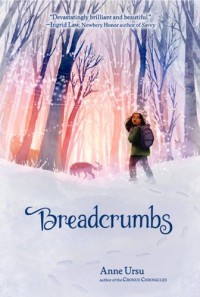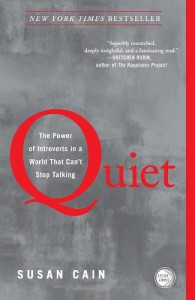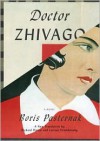
I was really disappointed by this. I had heard great things about the Lumatere Chronicles, and I enjoyed Jellicoe Road—a contemporary novel written by the same author. While the storyline is decent, and I do like many of the characters, I have issues with the plot, the romance, and Evanjalin. Let’s start with plot. I saw the major plot twist coming on page five, so the big reveal fell flat. The perspective stays mostly with Finnikin—which I am grateful for, because he is the only dynamic character in the novel. His character goes through the most intensive change, whereas the rest of the characters barely adjust at all. Even the soldiers in the Guard, as much as I like them, remain static figures. The first issue I have with the novel is the romance. (A) There is a primary love story in this novel, and while I am oversensitive to InstaRomance, when I was reading it struck me as underdeveloped. I found no emotional connection between the two paramours, and after rereading certain “romantic” passages, their passion seems forced. When the main plot picks up, their relationship barely holds my interest. (B) On a positive note, it is the side-character romance that catches my attention. Trevanion and Beatriss are the couple I can get invested in. Their relationship is told primarily through flashbacks and Beatriss has such an emotional impact that just saying her gave pushes Trevanion into a volatile outburst. Throughout the book, I kept hoping that it would take the Relationship Centerstage, but it kept getting pushed off to the end of the book. The biggest problem I have with the novel is Evanjalin: I can’t like her. Now, I know that not all characters have to be likeable, but while reading I keep getting the impression that I am supposed to like her. The other characters all worship her, even a character that viciously attacks her within the first few chapters. She is seen as beautiful, strong, independent, honest, and the perfect leader—and she is depicted as a goddess by everyone. Since this is told to me rather than shown through her actions, this kind of description feels a lot like authorial pressure. In addition, I cannot stress this enough: she is NOT a leader. She may be a spy, maybe even a warrior, but she has horrendous leadership skills. For one, she is hardly independent; she makes other people take risks for her cause, and she only endangers herself when other people depend on her survival. Twice she abandons her party of friends, and both times her presence is crucial to the mission. Additionally, both times she takes off because of personal issues rather than the good of others. She also gets into pointless arguments with Finnikin, usually insulting him with caustic guilt-trips, whenever he does something she doesn’t like. Again, I’m not saying that she has to be a perfect character. With more fitting descriptors, she would be a fine character. But in this context, her attributes do not match her praise. I’m not sure if I am going to read the rest of the series, in case it gets better further along.
 Jack and Hazel are best friends, even though Hazel’s loser status at school suggests that Jack doesn’t stand up for her very often. Hazel’s loyalty to him runs deep; when Jack mysteriously disappears, she runs off into a mythical realm to save him. Hazel is very likeable as a hero, and her isolation in school makes her pitiable. However, Ursu spent so much time explaining all of this that I expected some resolution with Hazel’s classmates and her teacher. Instead, the story ends without addressing either problem. I have to say, the story should have been longer, and I don’t just mean in an entertaining sense. The tension in the story mounted so quickly—and so thoroughly, with one threat after another—that I expected more difficulty once Hazel crossed into Snow Queen Territory. Hazel and the Snow Queen don’t even face off; they have a mild conversation and then peacefully part ways. It was, yes, a surprise but it was also anticlimactic. Some of the characters seemed half-sketched: the huntsman, who seems so important in his first appearance, barely affects Hazel’s journey at all; the girls who fell victim to the dancing shoes; the Little Match-Girl seemed one-dimensional and seemed to exist purely to hinder Hazel’s quest; and the wolves, whose unknown allegiances made them confusing figures in this mythical land. In fact, for all of Hazel’s woeful complaining about how terrible this world is, she shows no interest in trying to make it better. She has the strength to change everything—she is the only one who escapes from the magical adoptive-parents, charges alone to the Snow Queen’s palace, and escapes from the swan-seeking witch. Frankly, I expected more of a hero; when I didn’t get it— and specifically when Hazel actively refused to lend assistance, like when she didn’t try to save the other flower-girls or when she didn’t try to rescue the dancing girl—I felt like it was because the author had to no time to write it. Since Hazel’s difficulties in school were emphasized so much, I expected something to come out of all of that page-space: Tyler and her to team up, the Snow Queen to take over the real world, wolves to appear in the streets, etc. I feel like so much time was spent describing Hazel’s real-world troubles that, when she finally gets to the mythical world, it feels rushed.
Jack and Hazel are best friends, even though Hazel’s loser status at school suggests that Jack doesn’t stand up for her very often. Hazel’s loyalty to him runs deep; when Jack mysteriously disappears, she runs off into a mythical realm to save him. Hazel is very likeable as a hero, and her isolation in school makes her pitiable. However, Ursu spent so much time explaining all of this that I expected some resolution with Hazel’s classmates and her teacher. Instead, the story ends without addressing either problem. I have to say, the story should have been longer, and I don’t just mean in an entertaining sense. The tension in the story mounted so quickly—and so thoroughly, with one threat after another—that I expected more difficulty once Hazel crossed into Snow Queen Territory. Hazel and the Snow Queen don’t even face off; they have a mild conversation and then peacefully part ways. It was, yes, a surprise but it was also anticlimactic. Some of the characters seemed half-sketched: the huntsman, who seems so important in his first appearance, barely affects Hazel’s journey at all; the girls who fell victim to the dancing shoes; the Little Match-Girl seemed one-dimensional and seemed to exist purely to hinder Hazel’s quest; and the wolves, whose unknown allegiances made them confusing figures in this mythical land. In fact, for all of Hazel’s woeful complaining about how terrible this world is, she shows no interest in trying to make it better. She has the strength to change everything—she is the only one who escapes from the magical adoptive-parents, charges alone to the Snow Queen’s palace, and escapes from the swan-seeking witch. Frankly, I expected more of a hero; when I didn’t get it— and specifically when Hazel actively refused to lend assistance, like when she didn’t try to save the other flower-girls or when she didn’t try to rescue the dancing girl—I felt like it was because the author had to no time to write it. Since Hazel’s difficulties in school were emphasized so much, I expected something to come out of all of that page-space: Tyler and her to team up, the Snow Queen to take over the real world, wolves to appear in the streets, etc. I feel like so much time was spent describing Hazel’s real-world troubles that, when she finally gets to the mythical world, it feels rushed.












 1
1













